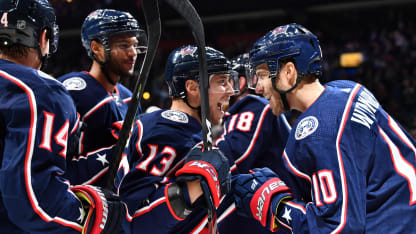Per NHL officials, it's still going to be a while. The current framework includes players being able to return to team facilities in early June to take part in on- and off-ice workouts in small groups, known as Phase 2 of the return to play plan. Then, in early July, teams would be able to stage training camps (Phase 3), with the actual hockey starting in either late July or early August. No firm dates have been set because of the uncertainty of the situation and travel concerns for players, but those are the rough guideposts we're working with here.


